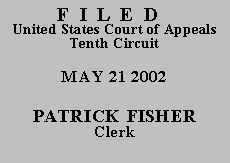

|
COURTNEY M. SCOTT, JR., |
|
Before KELLY, McKAY, and MURPHY, Circuit Judges.
Proceeding pro se, Courtney Scott appeals the district court's dismissal of the civil rights complaint he brought pursuant to 42 U.S.C. § 1983. Scott is currently incarcerated in an Oklahoma state penitentiary. Scott complains that Defendants have violated his Eighth Amendment rights by denying him appropriate medical and dental treatment. Scott also alleges that his due process rights were violated in two disciplinary hearings. Finally, Scott asserts that Defendants have impaired his First Amendment right of access to the courts and that Defendants have retaliated against him for exercising his constitutional rights.
Defendants moved to dismiss all of Scott's claims and the court ordered a Martinez report. See Martinez v. Aaron, 570 F.2d 317, 319-20 (10th Cir. 1978). After considering Defendants' brief, the Martinez report, and Scott's response, the court dismissed Scott's complaint pursuant to 28 U.S.C § 1915(e).
The district court's order contains a comprehensive description of each of Scott's claims and the duplication of the court's description is not warranted. With respect to Scott's First Amendment claims, the court concluded that Scott had failed to demonstrate that he suffered any prejudice from Defendants' alleged interference with his access to the courts. See Lewis v. Casey, 518 U.S. 343, 350-51 (1996) ("[T]he inmate therefore must . . . demonstrate that the alleged shortcomings in the library or legal assistance program hindered his efforts to pursue a legal claim."). The court then concluded that Scott's Eighth Amendment assertions amounted only to a difference of opinion as to the need for medical and dental treatment or the adequacy of any treatment and, thus, Defendants' acts did not constitute deliberate indifference to Scott's serious medical needs. See Johnson v. Stephan, 6 F.3d 691, 692 (10th Cir. 1993). To the extent Scott was complaining of delays in receiving medical treatment, he failed to demonstrate that any alleged delay had resulted in substantial harm. See Olson v. Stotts, 9 F.3d 1475, 1477 (10th Cir. 1993) ("[D]elay in medical care can only constitute an Eighth Amendment violation if there has been deliberate indifference which results in substantial harm." (quotation omitted)).
The district court also concluded that Scott failed to state a due process
claim because in each of the two prison disciplinary proceedings he was: (1)
provided with advance notice of the charges, (2) furnished an opportunity to
present a defense, and (3) given a written statement of the reasons for the
disciplinary decision. See Wolff v. McDonnell, 418 U.S. 539, 564-66 (1974).
Additionally, the disciplinary sanctions were supported by some evidence. See
Superintendent, Mass. Correctional Inst. at Walpole v. Hill, 472 U.S. 445, 454
(1985). Finally, the district court concluded that Scott's allegations of retaliation
were conclusory and not supported by allegations of specific facts, rendering
them insufficient to state a valid claim.
Upon review of Scott's appellate brief and de novo review of the entire
record on appeal, this court affirms the district court's dismissal of Scott's
complaint for substantially those reasons set forth in the district court's order
dated September 14, 2001. Scott is reminded that he remains obligated to
continue making partial payments until his appellate filing fee is paid in full. See
28 U.S.C. § 1915(b).
ENTERED FOR THE COURT
Michael R. Murphy
Circuit Judge
*. This order and judgment is not binding precedent, except under the doctrines of law of the case, res judicata and collateral estoppel. The court generally disfavors the citation of orders and judgments; nevertheless, an order and judgment may be cited under the terms and conditions of 10th Cir. R. 36.3.